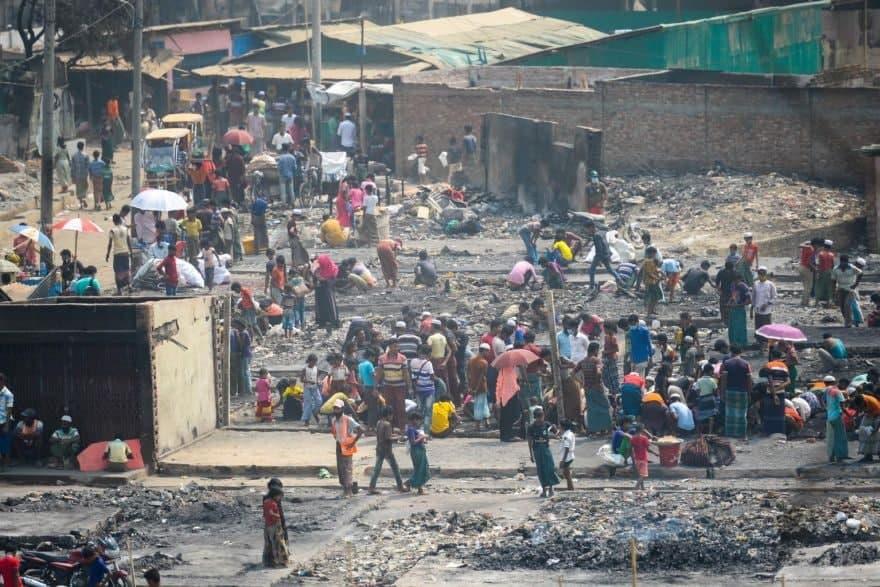YANGON, June 3 (AFP) - A shadow government in Myanmar on Thursday (Jun 3) called on the Rohingya minority to help it overthrow the junta, promising citizenship and repatriation for the persecuted Muslim community in a future democratic Myanmar.
Myanmar has been in turmoil since the military overthrew democracy champion Aung San Suu Kyi and her National League for Democracy (NLD) government in a Feb 1 coup.
A brutal crackdown on dissent by the junta has since killed more than 800 people, according to a local monitoring group.
A group of ousted lawmakers - mostly from the NLD - later set up a shadow "National Unity Government" which has sought to bring anti-coup dissidents together.
The junta has classified the NUG as "terrorists", meaning anyone speaking to them - including journalists - can be subjected to charges under counter-terrorism laws.
"We invite Rohingyas to join hands with us and with others to participate in this Spring Revolution against the military dictatorship," the group said in a statement.
Aung San Suu Kyi's NLD government had avoided the term Rohingya because of sensitivity among ethnic groups in the majority-Buddhist country, referring to the minority as "Muslims living in Rakhine".
In Myanmar, the Rohingya are widely seen as interlopers from Bangladesh and have been denied citizenship, rights and access to services for decades under what Amnesty International calls apartheid-like conditions.
The NUG also promised to end a 1982 citizenship law which discriminates against the Rohingya, promising all those born in Myanmar or to a Myanmar citizen would be granted citizenship.
The group also said it was committed to repatriating all Rohingya languishing in camps in Bangladesh "as soon as repatriation can be accomplished voluntarily, safely and with dignity".
More than 740,000 Rohingya fled over the border into Bangladesh after a bloody military campaign in 2017 that the UN condemned as ethnic cleansing.
The military claimed its operations were justified to root out Rohingya insurgents following a series of deadly attacks on police posts and has denied all allegations of wrongdoing.
Aung San Suu Kyi defended the army's conduct and even travelled to The Hague to rebut charges of genocide at the UN's top court.
More than 600,000 Rohingya remain mostly in northern Rakhine state without citizenship, restricted to either camps or their villages, many unable to access medical care.
